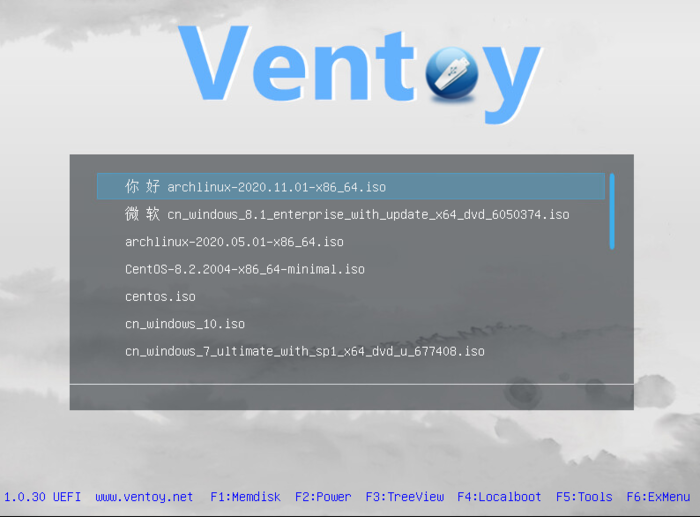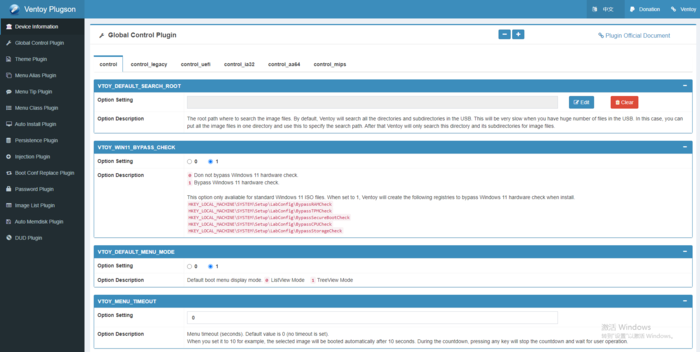Published Release of the Ventoy 1.0.62 designed to create boot USB carriers including several operating systems. The program is notable for ensuring the possibility of loading the OS from the unchanged ISO, WIM, IMG, VHD and EFI images, without requiring the image of the image or reformatting the media. For example, it is enough to simply copy the ISO-Image and Vento set to USB Flash to provide the ability to download inside operating systems. At any time, you can replace or add new ISO images by simply by copying new files, which is convenient for testing and pre-acquaintance with various distributions and operating systems. The project code is written in the SI language and distributed under the GPLv3 license.
Ventoy supports loading on systems with BIOS, IA32 UEFI, x86_64 UEFI , ARM64 UEFI, UEFI Secure Boot and MIPS64EL UEFI with MBR or GPT partitions. The download of various options for Windows, Winpe, Linux, BSD, CHROMEOS, as well as VMware and Xen virtual machines are supported. The developers tested work with Ventoy more than 770 ISO images, including various versions of Windows and Windows Server, several hundred Linux distributions (stated on checking 90% of distributions presented on DistroWatch.com), more than a dozen BSD systems (FreeBSD, Dragonfly BSD, PfSense, Freenas, etc.).
In addition to USB media, the Ventoy bootloader can be installed on the local disk, SSD, NVME, SD cards and other types of drives that use FAT32, EXFAT, NTFS, UDF, XFS or EXT2 / 3/4 file systems. There is a mode of automated installation of the operating system to the portable medium with the addition of its files to the created environment (for example, to create Windows or Linux-distribution images that do not support Live mode).

The new version is notable for the implementation of the graphical interface VentoyPlugson to configure plugins. In the plugin to change the design, the default_file setting is proposed to determine the default theme. In the F5 Tools boot menu, a new section has been added to switch between themes of the design. FreeBSD boot optimization. Updated files with translations.
